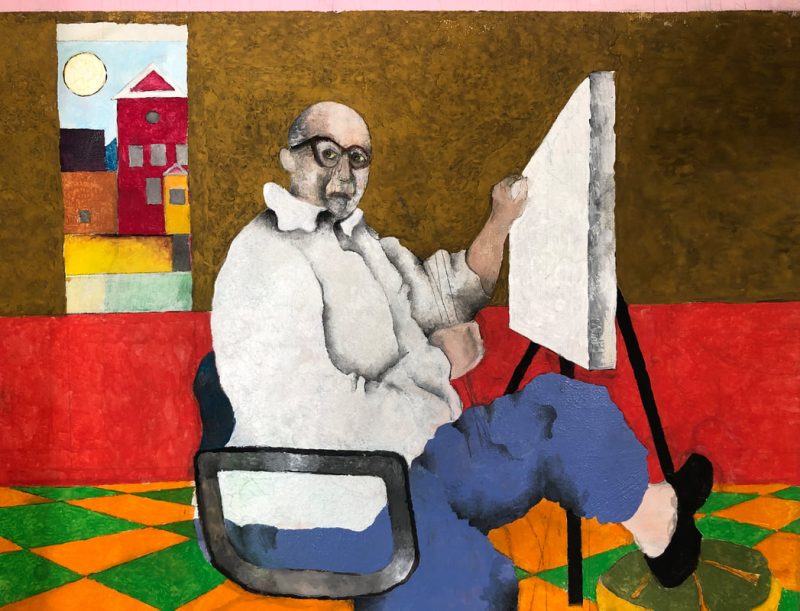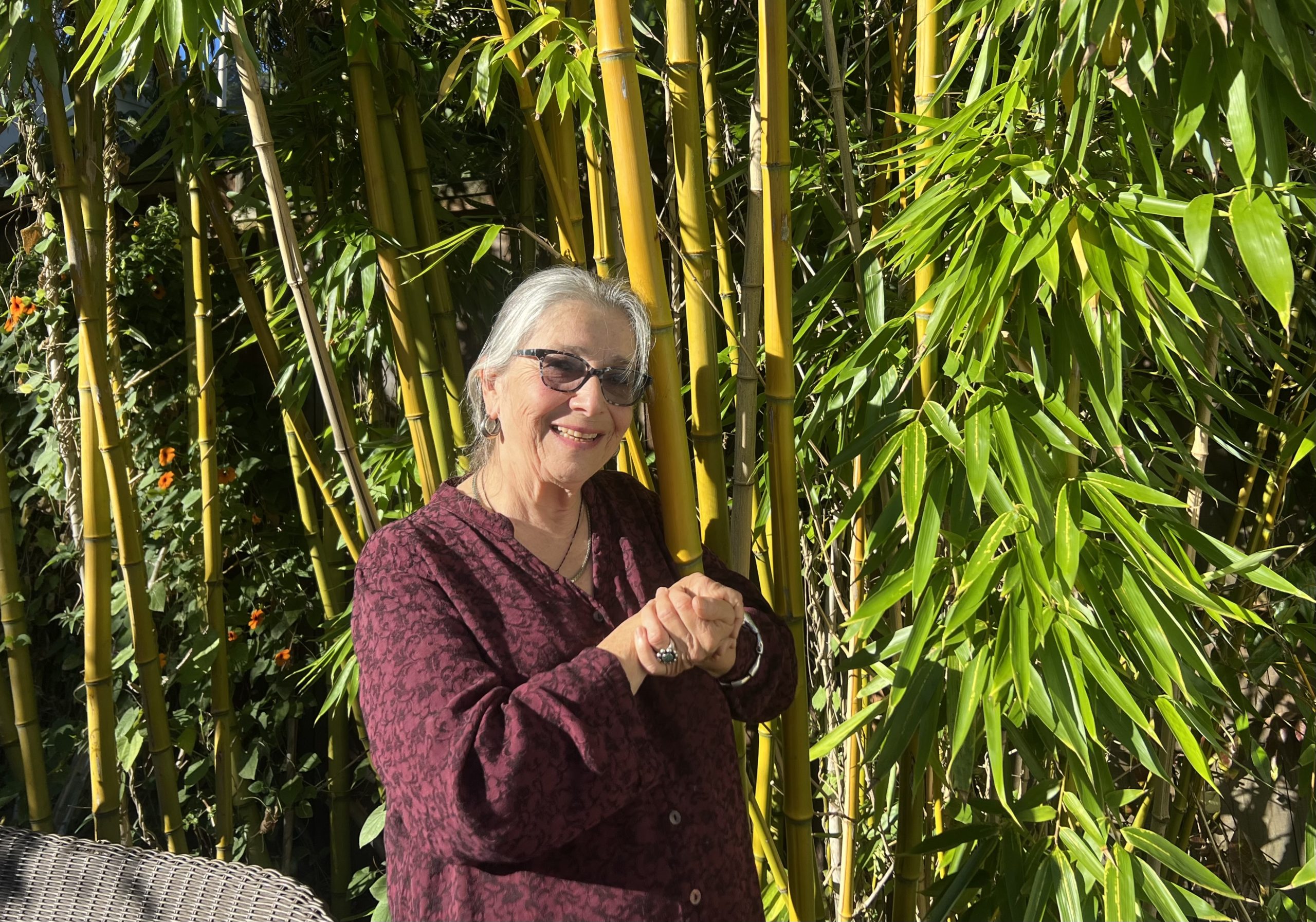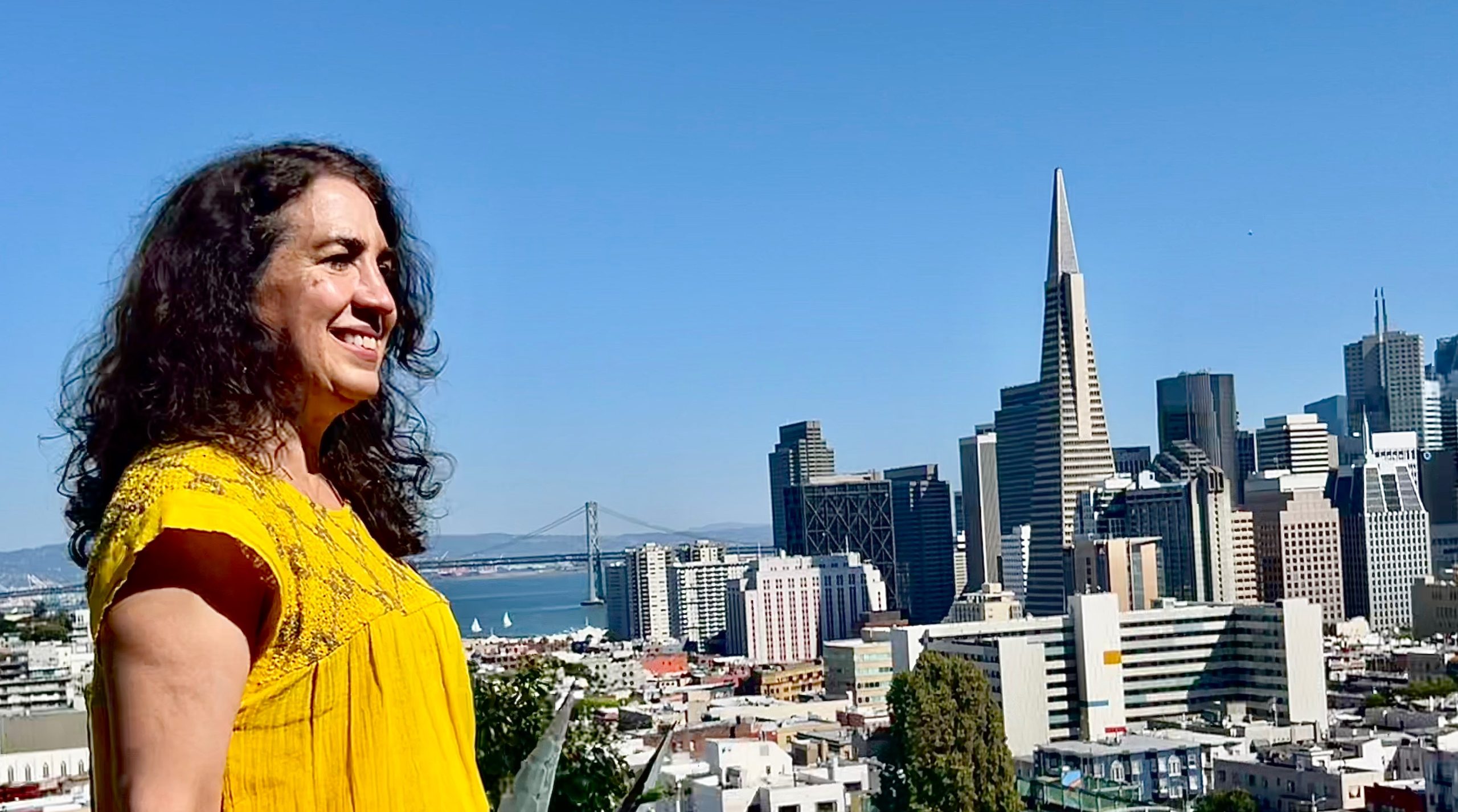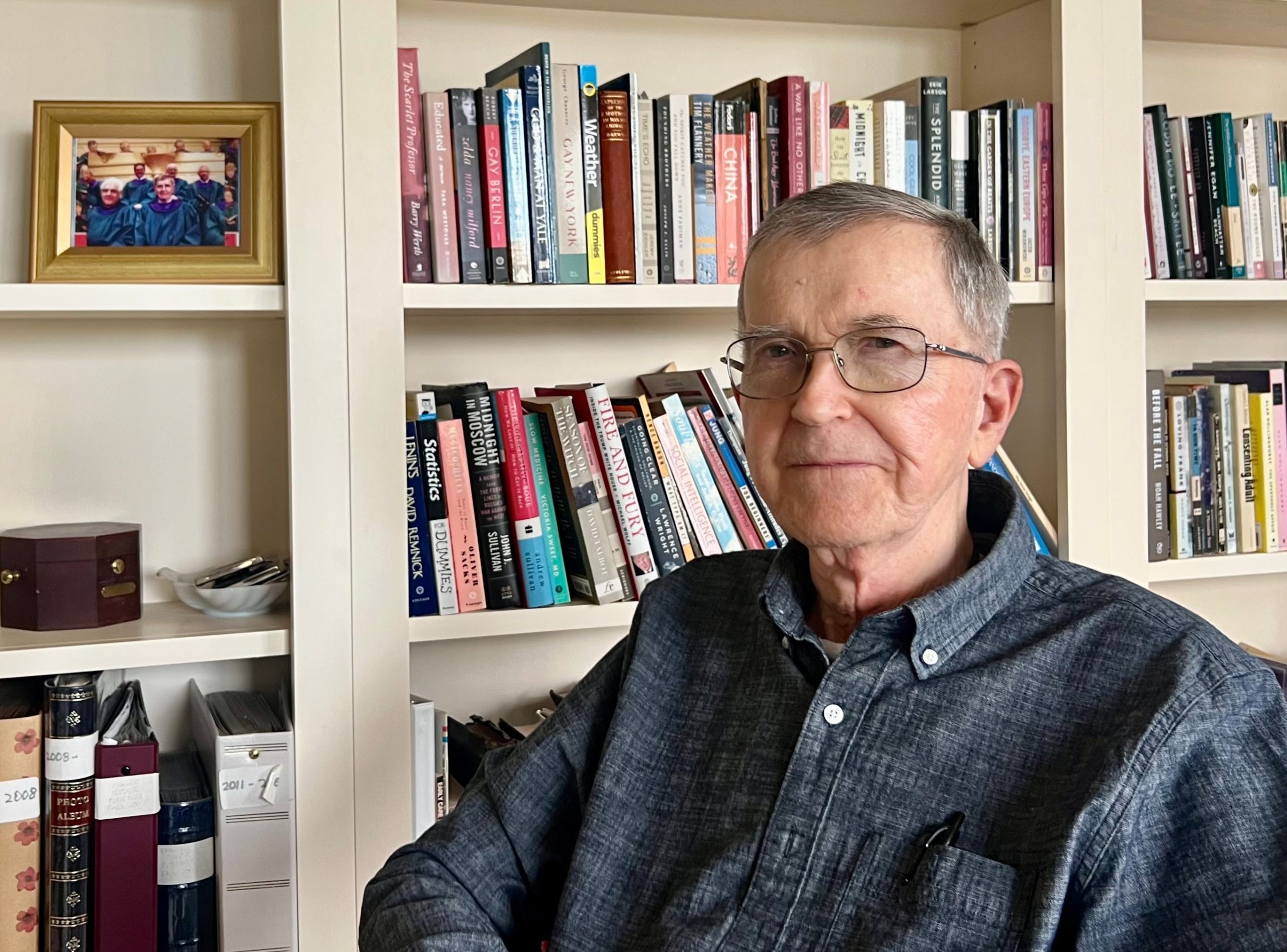Only views from his window: Artist overcoming shyness shares paintings reflecting a life of chaos converted to calm
Though Glenn Stultz has evolved from pencils and watercolors to acrylics and oil, his pictures depict the same view: backyards and houses seen from the windows of his Section 8 apartment in San Francisco’s Ocean View neighborhood.
Too shy to enroll in a drawing class, he taught himself by studying big, coffee table books. His view – neat rows of houses framed by quiet streets running south to Daly City – became his subject. “I happen to be lucky enough to live somewhere where I have a good view, not a touristy view or anything, but a good view. So that’s what I do.”

He doesn’t consider himself a great artist: “Van Gogh, Caravaggio, and Sisley were real artists. While I get a lot out of my art, I’m not that good.” Yet his work is gaining some recognition, even a bit of income, and he’s learning to overcome the shyness born of a troubled background.
Two shows at Spike’s coffee shop in the Castro, an exhibit at Café Seventy8 in Bernal Heights, and a fall talk at the I. T. Bookman Community Center in Ocean View, where he lives, are challenging this very private person to talk about his work. He seems pleasantly surprised that viewers like his work. “I’m humble, but I always wanted to be something big, historic if I could.”
His paintings take mostly cityscapes and permeate them with kaleidoscopic displays of color, infusing the mundane with a joyous wonder. His latest and largest piece, “View of the Moon,” is a starry sky anchored by the geometric grid of Ocean View streets and Park Merced towers. The calm, dark night presides over a vibrant jumble of city homes and buildings.
Being in a safe place
He calls this juxtaposition “limited chaos,” like the chaos of life, something that has to be overcome, moved beyond to … the feeling of freedom and being in a safe place.” It’s something he’s sought his whole life.

Chaos is something he’s known all his life, from his childhood In Louisiana to the drug culture of ’60s San Francisco to alcoholism, street living, and an eventual nervous breakdown and a long road to recovery.
He was born in a mining town in Eastern Kentucky. When he was three, his parents divorced. He and his mother spent the next five years sleeping on cots in relatives’ homes up and down Appalachia. “I didn’t know what was going on, everyone was acting out their drama,” he recalled. “I was just confused.”
He was certain, however, that life would be better if he could only live with his father out West. When he was eight, his father agreed to take him, but instead of the security he had envisioned, he was handed over to his uncle’s wife. “She wanted a child. I was passed from hand to hand like you would sell an animal. I was messed up.”
So was his aunt, who, a few years later, was institutionalized as a gun-toting alcoholic. When she died of a heart attack, his bereft uncle – the only adult around – went into a depression. “I was completely alone, I had no one,” said Stultz. “It was a bad situation all the way through.”
In 1967, after graduating from high school in Shreveport, Louisiana, he moved to San Francisco – drawn by its counterculture, political activism, cheap rent, and a drug culture of which he quickly became a part. After a few days of living on the streets, he moved into Villa Satori, a “hippie haven” in the Haight, followed by a move into a “big old Victorian” south of Market.
Drugs, beer and decline

Speed was his drug of choice, but it was beer that did him in. “I was always drunk, so drunk I couldn’t get any drunker. My room was always crowded with empty beer cans.
“Drinking gets your courage up,” he continued. “One time I was so drunk I threw a barrel through a liquor store window. Climbed in, loaded up with beers, only to climb out into the waiting arms of the police.” That was not the first nor the last time he went to jail.
A couple of trips back to Shreveport disabused him of the fantasy of the triumphant prodigal son. But his current sobriety is the result of a “long slog,” he said, including a nervous breakdown that led to a stay at Napa State Hospital, residential treatment, and halfway houses, good psychiatrists, medication for his depression and anxiety, and the hard work of 12-step programs.
“Really nagging” friends convinced Stultz to attend an Alcoholics Anonymous meeting. “I don’t know if I found God, but I found something,” he said. Finally, 30 years ago, he was accepted into the Section 8, subsidized housing program and was able to move into his apartment.
Along the way, he joined the Catholic Church, where he remained active for several years. He explored writing and dabbled in art. Then a counselor introduced him to “For You: Artists and Elders,” a performance group that pairs creative but isolated elder artists with younger people involved in the arts.
One of their projects, “Out My Window,” was a video about Stultz that he worked on with Sarah Wells. That was followed by an introduction to Deirdre Visser, a photography teacher at Mills College at Northeastern University in Oakland, who not only arranged his art exhibits but helped him build up the confidence to meet the public.
A splash of cold water
“Stultz is a private person,” she said. “I prepare him for these events by letting him know that people will just ask him about his work. He’s not going to give a talk, he’s answering questions. I told him there’s visual magic to his work, it needs to be shared.”

Art helps him come out of the depression and anxiety that has tripped him up all his life. His brushes, paints, and canvases keep him company, fending off the loneliness that can come with living alone.
“It’s a splash of cold water on my face,” he said. “When I’m feeling gloomy, painting makes me feel positive. I’m the same person in the same place, but I have a character, an identity.”
While painting is still his anchor and salvation, he’s had his challenges. Within the last 10 years, he was diagnosed with diabetes, suffered two minor strokes, and is trying to control a tremor in his right/painting hand.
Now that he is sharing his art, he hopes it will be as reviving to others as it is to him.
“Art is something to believe in. I’ll have some worth on this earth if I can inspire anybody else to do this,” he said. “It would be a good thing.”
As viewers at his most recent art show complimented him on the cheerfulness of his color palette and the beauty of his images, Stultz smiled. “This is the happiest I’ve ever been,” he said. To celebrate, he purchased five new canvases.






Susan Harmon
I love these paintings!
Laverne Simon
Lovely paintings and work. Would like to purchase a painting from this article Glen Stultz.
Leigh McLellan
What beautiful work!